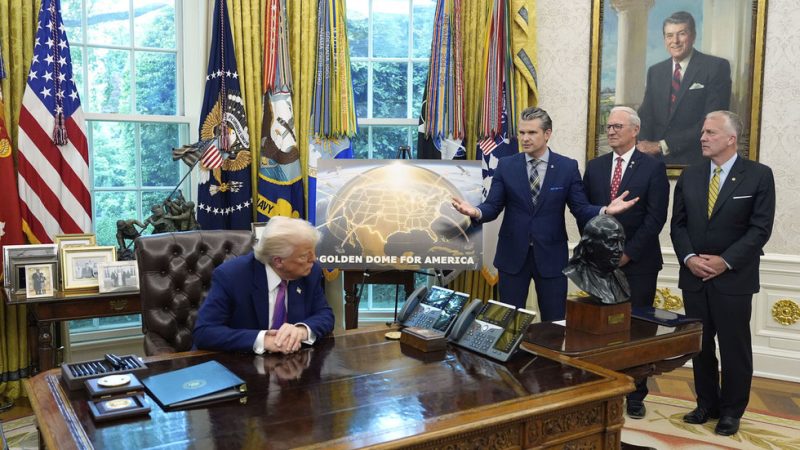
President Donald Trump recently unveiled an ambitious new national security initiative, dubbed the ‘Golden Dome,’ aiming to deploy a space-based missile defense system by the end of his term. This announcement marks a significant escalation in the ongoing debate surrounding missile defense strategies and the role of space in national security. The initiative promises a revolutionary leap in protecting the United States from ballistic missile attacks, potentially rendering existing ground-based systems obsolete.
The specifics of the ‘Golden Dome’ remain shrouded in some secrecy, with the administration offering only limited details. However, it’s understood that the plan involves deploying a network of advanced interceptor satellites capable of engaging and destroying enemy missiles in space. This proactive approach contrasts sharply with current methods that largely rely on intercepting missiles during their atmospheric re-entry phase.
This ambitious project has naturally sparked a considerable amount of debate. Supporters highlight the potential for dramatically enhanced national security, arguing that a space-based system could offer a more effective and timely response to ballistic missile threats. The ability to intercept missiles before they even enter the atmosphere would significantly reduce the time available for reaction and minimize the risk of successful attacks.
However, critics have raised concerns about the feasibility, cost, and potential implications of such a system. The technological challenges involved in developing and deploying a large-scale space-based missile defense network are immense. Furthermore, the significant financial investment required raises questions about resource allocation and the potential impact on other critical national security priorities.
Beyond the technical and financial aspects, the ‘Golden Dome’ initiative also raises important international implications. The deployment of such a powerful weapon system could potentially trigger an arms race, prompting other nations to develop their own countermeasures, leading to increased instability and the risk of escalation. The legal and ethical dimensions of weaponizing space also remain a subject of ongoing international discussion.
The ‘Golden Dome’ initiative represents a bold gamble, a significant investment in a technology that is both promising and fraught with potential pitfalls. Only time will tell whether this ambitious plan will truly revolutionize missile defense or prove to be an overly optimistic and ultimately costly undertaking. The coming months and years will undoubtedly be crucial in determining the success and long-term implications of President Trump’s ambitious space-based defense strategy.










